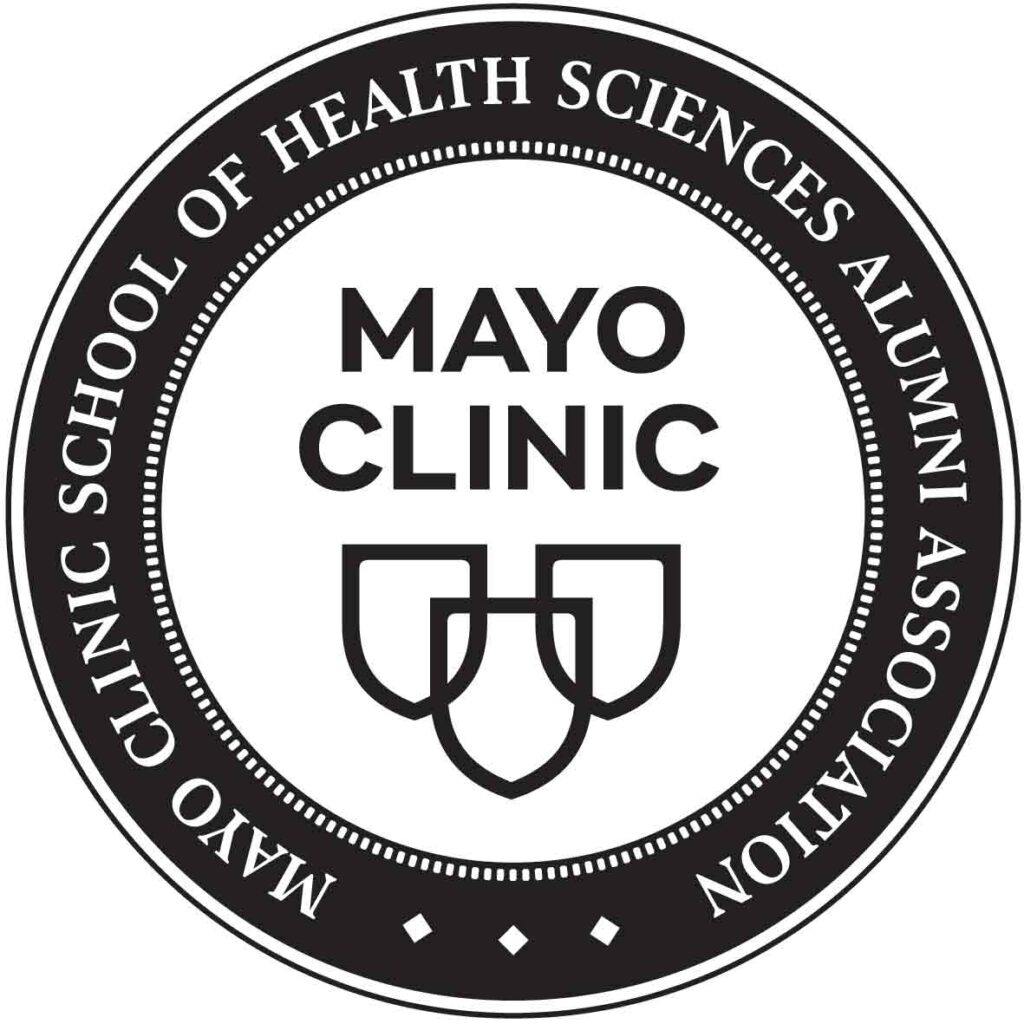Your cart is currently empty!
Students as researchers
Browse through the poster presentations at the Midwest Society of Diagnostic Ultrasound’s annual meeting, and you’ll gain insight on the latest advances in the field. Look closer, however, and you’ll find that not all of the researchers behind these expert presentations are professionals — yet. Each year, Mayo School of Health Sciences (MSHS) Echocardiography students participate in the poster gallery.
“Our posters involve reviews of the most recent literature available,” says Joshua Finstuen, Echocardiography Program director. “There’s plenty for them to research: new guidelines, new protocols, new twists on existing topics. It’s a great way for students to understand more about the profession and see how fast things are changing.”
This is just one example of the wide range of student research conducted throughout the school each year. Delving into robust research projects gives MSHS students a rich opportunity to explore their fields in more depth, better understand the research process and learn about becoming discerning professionals as they launch into their careers.
A path to lifelong learning
MSHS is consistently well represented with scholarly publications and presentations from students in doctorate-level programs. But, research is also a key component of learning for those in associate, certificate and bachelor’s programs.
Michael Silber, MD, MSHS dean, sees research as valuable for all students, no matter what area of health science they pursue.
“Health sciences and medicine are progressing at such an amazing rate that whatever facts we teach the students now are going to be different in 10 years’ time or perhaps even less,” he says. “We have to train our students so they can competently read medical and health science literature and understand the validity of new approaches to their subjects. They need to be able to judge whether new advances are valid for the work they do.”
One of the most effective ways to gain that understanding is for students to have practical experience doing research projects on their own. They see what goes into new investigations and new discoveries. Then, they become better able to assess how advances in a field and what they mean.
A wealth of support
To properly learn the lessons of research, the students’ projects must be conducted using thorough, reliable methods. MSHS students have a significant advantage in that arena because of their access to resources available through Mayo Clinic.
Jamilia Russeau, coordinator of Florida’s Pharmacy Residency, clearly sees the value of those resources. MSHS pharmacy residents at Mayo Clinic in Florida complete a comprehensive research project that spans the academic year.
“We have a research committee, statisticians, clinical informatics, physicians, nurses and other professionals all available to help our residents,” says Russeau. “They do the work. But, there’s a structure in place to help them ensure what they do is meaningful, comprehensive, well-developed research that contributes to the existing literature in a substantive way.”
An impact beyond the classroom
The findings from student research often have an impact on clinical practice inside and outside of Mayo Clinic. Histology students have discovered a better way to decalcify a bone specimen. Employees have gleaned tips on the newest echocardiography techniques from students’ exhaustive literature reviews. Pharmacy residents have teamed up with physicians to evaluate safe, effective ways to get patients ready for surgery.
For Amy Seegmiller Renner, an education specialist in Rochester’s Division of Anatomic Pathology, that real-world application is key to truly valuable student research. The student research project ideas often come from lab employees. The topics focus on areas where more information is needed to improve lab processes.
“We want the lab to be able to make a practice change based on the students’ findings,” Renner says. “But, the project truly helps students, too. They become integrated into the role of a tech and the work within a lab setting. Then, it goes beyond that. Students see how to identify areas in need of improvement and learn how to take the steps that makes the improvement possible.”
From Russeau’s point of view, the benefits of student research are multilayered. “This is a safe place for students to learn the right way to do research. When they are out in their professional roles, they aren’t going to have someone to walk them through the steps. They get to do that here,” she says.
Russeau says the research also helps Mayo Clinic. “Students focus on projects the Pharmacy Department needs to have done. It’s not just a grade on a paper. This work has real benefits for everyone involved.”

